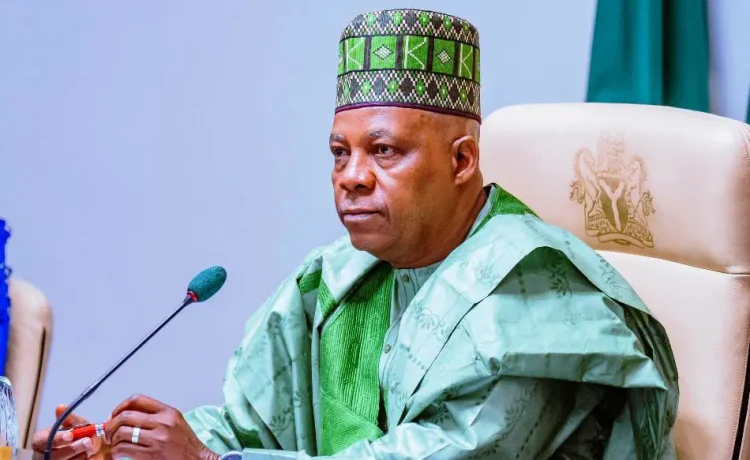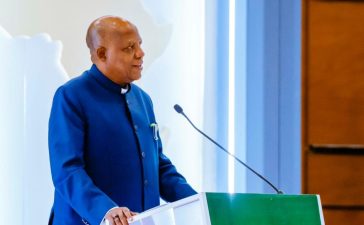The Federal Government has called for increased investment in disaster preparedness and resilience mechanisms to mitigate the impact of disasters across Nigeria.
The call was made on Monday in Abuja during the commemoration of the 2025 International Day for Disaster Risk Reduction, themed “Fund resilience, not disaster.”
The event also featured the unveiling of two major policy frameworks — the National Emergency Management Agency (NEMA) Strategic Plan (2025–2029) and the National Disaster Risk Reduction Strategy (NDRRS) (2025–2030) — both designed to promote risk-informed development, innovative financing, and stronger institutional collaboration.
Nigeria has continued to experience recurring floods, erosion, drought, and other climate-related emergencies that have displaced thousands, destroyed farmlands, and strained public resources. The growing vulnerability, experts say, underscores the urgent need for proactive measures and sustainable financing to strengthen national resilience.
Speaking at the event, Vice President Kashim Shettima emphasized that it is “wiser, cheaper, and more humane” to prepare for disasters before they strike than to rebuild after devastation occurs.
“Every naira we spend today on preparedness saves many more tomorrow on response and recovery. Every investment in resilience is an investment in the lives and futures of our people,” Shettima said.
The Vice President stressed that the Tinubu administration is integrating disaster risk reduction across key sectors such as agriculture, infrastructure, education, and health, while expanding early warning systems to ensure communities receive timely alerts before floods, droughts, or disease outbreaks.
He disclosed that the government is strengthening state and local emergency management agencies through training, technology, and coordination support, alongside developing a National Disaster Risk Financing Framework to guarantee funding for prevention and preparedness.
“To fund resilience is to invest in drainage systems, not relief camps; to build stronger schools and hospitals, not temporary shelters; to support farmers with climate-smart tools, not just food aid after floods,” he added.
Shettima urged the private sector, academia, and civil society to partner with government in resilience-building, noting that true national resilience must be a shared responsibility.
In her remarks, NEMA Director-General, Mrs. Zubaida Umar, called for a decisive shift from reactive response to proactive resilience funding, stressing that the frequency and intensity of disasters driven by climate change, conflicts, pandemics, and technological risks have outpaced traditional emergency systems.
“We must move from ad-hoc funding of disasters to a multi-stakeholder financing architecture that supports prevention, preparedness, and sustainable recovery,” she stated.
Umar revealed that NEMA is developing a National Risk Monitoring and Information Platform to improve early warning systems, vulnerability mapping, and data-driven investment decisions. She also highlighted the need for innovative financing instruments such as catastrophe bonds, insurance pools, climate funds, and blended finance to sustain risk reduction efforts.
Zamfara State Governor, Dauda Lawal, in his remarks, emphasised the link between peace, preparedness, and resilience, noting that disaster management requires consistent and deliberate funding.
“Preparedness and resilience must be funded deliberately. It is not just a moral duty but an economic necessity,” he said.
The event brought together government officials, lawmakers, international partners, and stakeholders from the humanitarian, private, and research sectors, all reaffirming their commitment to building a safer, more resilient Nigeria.







